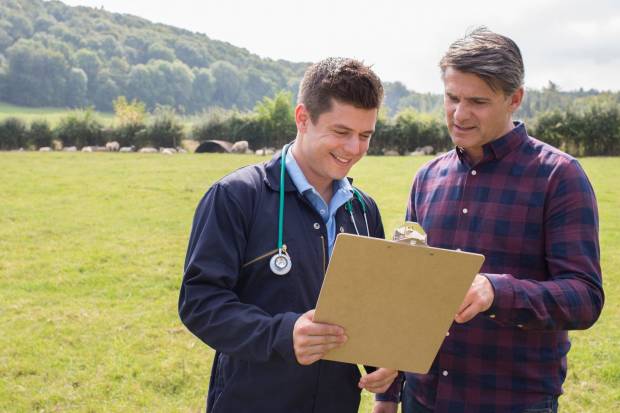UK Sheep sector urges Government to consider implications of regulation
1st November 2022
The National Sheep Association (NSA) is concerned that a significant amount of the UK’s meat production will become non-compliant for export to the EU if proposed changes are implemented meaning a veterinary attestation of health status must accompany animals destined for slaughter.
The change proposed by Defra, from a farmer declaration to a veterinary attestation, is proposed to be introduced next month in order to be fully compliant with the EU Animal Health Regulations. However, farmers, the supply chain, and veterinary surgeons are not in a place to be able to deliver this with such short notice.
NSA Chief Executive Phil Stocker says: “It seems that once again the farming and food industries are having to fight hard to avoid yet another ‘Brexit barrier’ to trade from Great Britain to the EU and Northern Ireland. What is disappointing about this is that the Defra departments dealing with it have fallen straight back into enforcement mode rather than enabling mode. There has been little effort to understand or accept the challenges that vet signed attestations bring, and no appreciation that the industry would need time for this new requirement to be implemented. There is a very high percentage of sheep farmers who are not part of voluntary assurance schemes and there is not enough time, or vets, to do any necessary additional inspections.”
With 72% of all meat exports and 96% of all sheep meat exports going to the EU, NSA is concerned this has the potential to have a devastating effect on farmers, auction markets and meat processors. The changes are likely to have an immediate impact on livestock prices here in the UK as well as causing significant and costly disruption for the supply chain.
Since the EU introduced a requirement for farms to have regular animal health visits by a vet to become export compliant, farmers have been able to comply with EU Animal Health Regulations (AHR) by providing a simple farmer declaration that vet visits have been done.
Sheep Veterinary Society (SVS) representative, Philippa Page comments: “SVS is concerned by the short timescale in which veterinary certified vet attestations will be required by sheep farmers supplying products for the export market. Vets and sheep farmers work together to monitor, measure and maintain animal welfare standards on the farms under their care.
“We are concerned over the veterinary capacity to deliver signed attestations by the date of Tuesday 13th December 2022 and are significantly concerned that this will delay exports and put unnecessary pressures on veterinary farm teams and farmers. We appreciate that farm assurance declarations may be suitable but recognise a significant proportion of sheep holdings under veterinary care are not members of farm assurance schemes. The method of provision of veterinary attestations is also unclear .”
Mr Stocker concludes: “It seems no one has considered the practicalities of tracing these separate paper attestations through the supply chain and while Government has invested millions of pounds into a new Livestock Information programme, and continually talks about IT solutions and the need to reduce red tape, we have a new livestock traceability and information programme that isn’t able to service this need. The only solution Defra appear to be putting forward is using farm assurance scheme membership as evidence of veterinary visits, but there is no appreciation that these are voluntary schemes and therefore somewhere in the region of 50% of sheep farmers will not be members.”
SVS and NSA are calling on Defra to listen and work constructively with industry to arrive at a point where it can fully comply with EU requirements for trade. The associations however are highlighting the that the sector must be given time to adapt and the tools needed to avoid additional red tape that risks the UK sector being alienated from its main trading partners.





